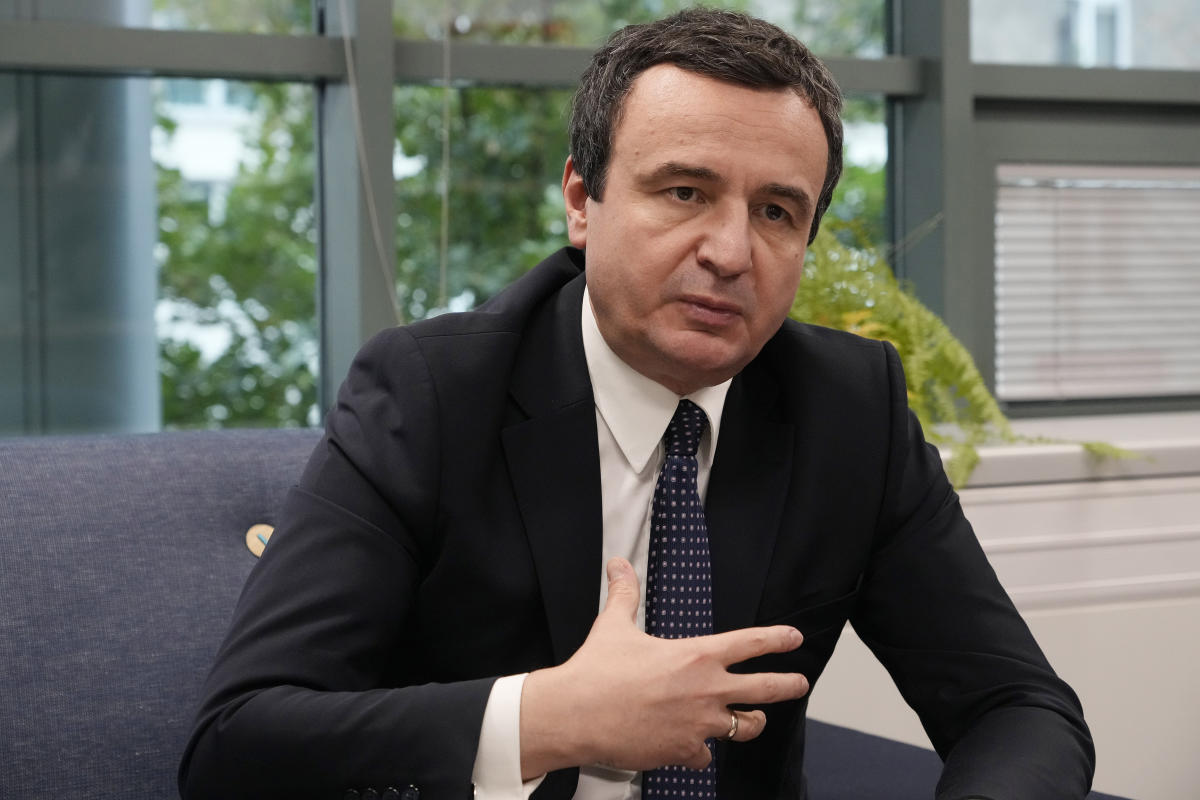WARSAW (AP) — Kosovo’s prime minister said Thursday that the Balkan region has enjoyed the greatest degree of peace, freedom and democracy in the last 25 years, but that this could be reversed if Russia prevails in Ukraine and favors Serbian expansion .
Albin Kurti, who has served as Kosovo’s prime minister since 2021, said it was important for the West to remain united in its support for Ukraine as the country defends itself from Russian aggression.
In an interview with The Associated Press, Kurti argued that a stronger Russia will embolden Serbia, and that not only Kosovo, but also Bosnia, Montenegro and “perhaps North Macedonia” will be endangered by what he described as Serbian expansionist ambitions.
The relationship between Kosovo and Serbia remains tense, and the 13-year-old normalization talks facilitated by the European Union have failed to make progress, especially following a shootout in September last year between armed, masked Serbs and Kosovo police officers. left four dead.
NATO-led peacekeeping forces have also increased their numbers along the Kosovo-Serbia border.
“These 25 years have been the quarter of a century with the highest degree of peace, freedom and democracy in the Balkans,” Kurti declared.
He spoke at Kosovo’s diplomatic mission in Warsaw, the Polish capital. The mission was opened after Poland and Kosovo established consular relations in 2022.
When asked what a Russian victory in Ukraine would mean for Kosovo and the Balkans in general, Kurti said that “with Serbia as a regional hegemon and with Russian backing, these 25 years of peace, freedom and democracy in the Balkans, unprecedented in our history, they are in danger again.”
Serbian attempts to maintain dominance when the former Yugoslavia broke up in the 1990s triggered the most devastating wars in Europe since World War II, at least until the Russian invasion of Ukraine on February 24, 2022.
Kosovo was a Serbian province until NATO’s 78-day bombing campaign in 1999 ended a war between Serbian government forces and ethnic Albanian separatists in Kosovo, which left about 13,000 dead, mostly ethnic Albanians. , and expelled the Serbian forces.


